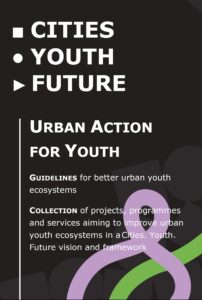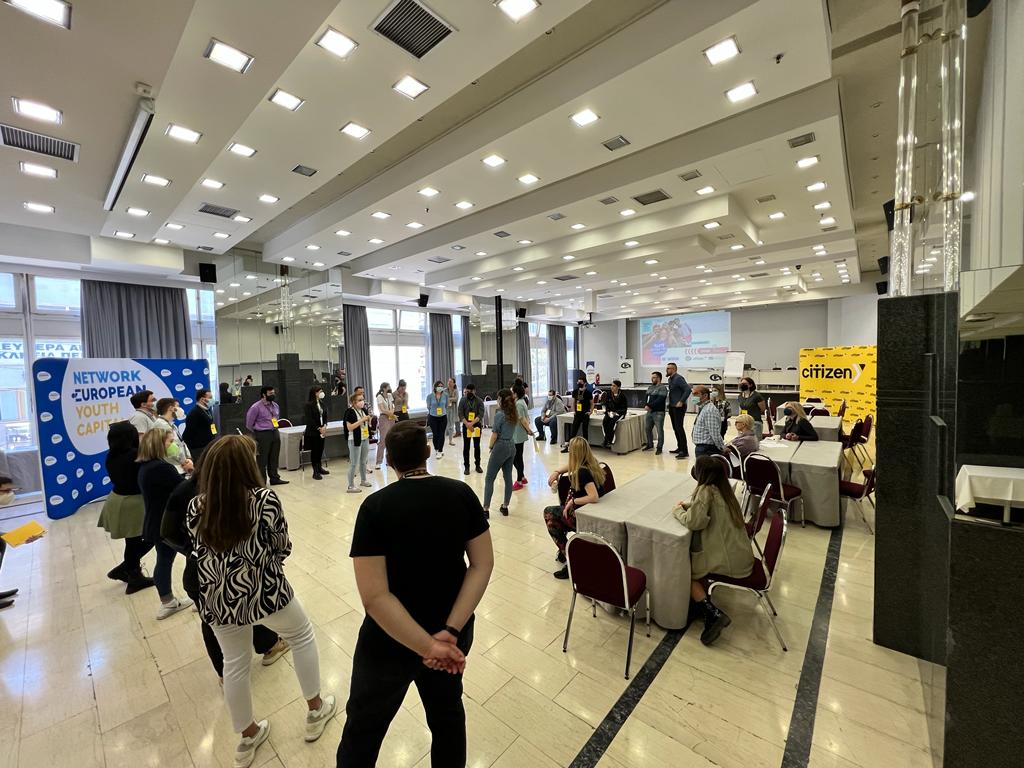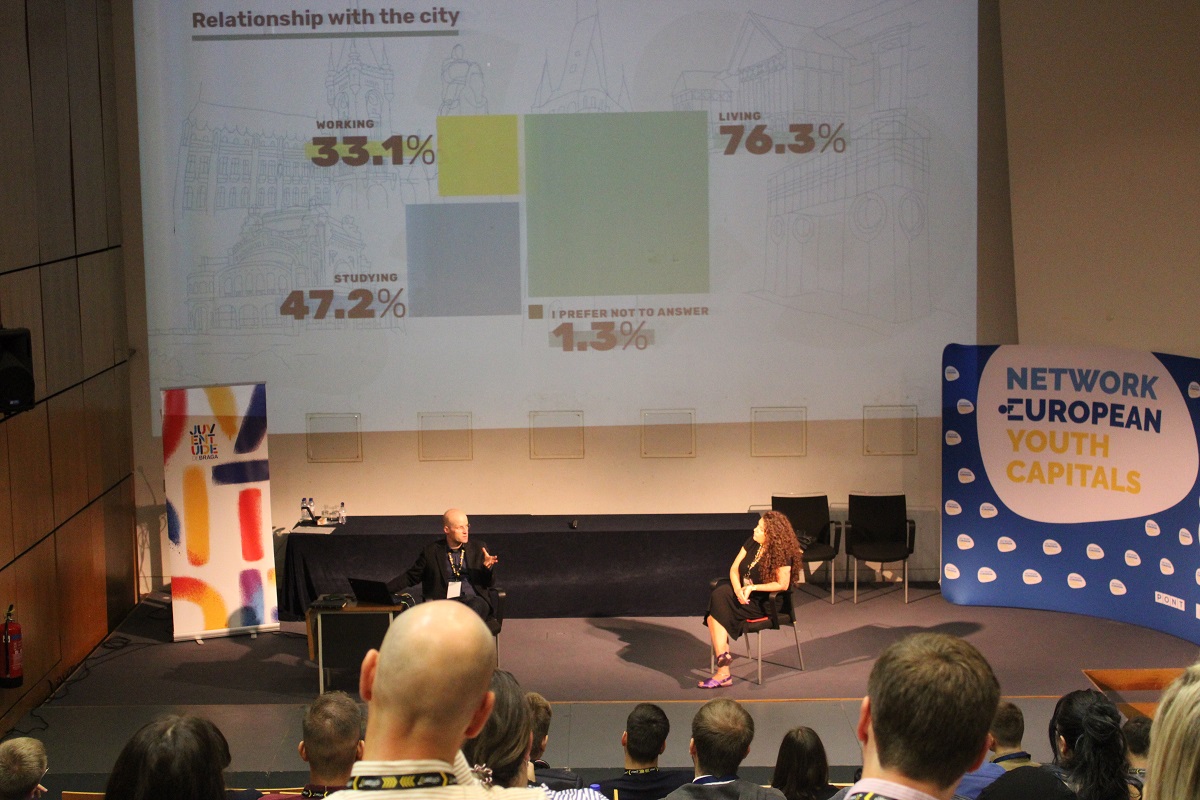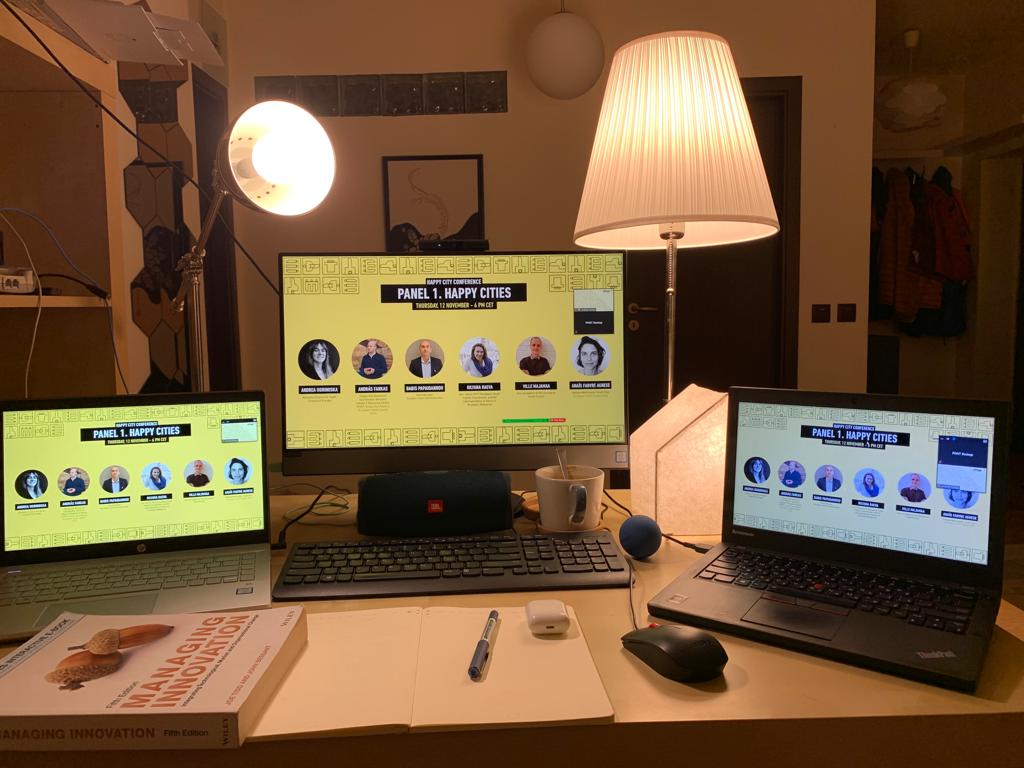"Urban Citizen Y"
A collaborative project of 7 European cities in the context of the Network of European Youth Capitals, supported by the European Union's Europe for Citizens programme.
 With the agreement and support of Cluj-Napoca City Hall, PONT Group initiated and coordinated the Urban Citizen Y project, a project proposed for funding in 2019 and implemented starting from 1 October 2019 until 30 September 2022.
With the agreement and support of Cluj-Napoca City Hall, PONT Group initiated and coordinated the Urban Citizen Y project, a project proposed for funding in 2019 and implemented starting from 1 October 2019 until 30 September 2022.
The official project FACT SHEET can be found HERE.
Today’s young people will be the key generation of our cities in 20-30 years. What if we build long-term urban development around young people?
The aim of this project was to develop a framework for urban youth ecosystems with the active co-creation of youth, which serve the sustainable long-term development and envisioning of the future of European cities.
The project’s objectives were:
- to involve active young people and youth workers from the cities of Braga, Maribor, Thessaloniki, Cluj-Napoca, Varna, Novi Sad and Amiens in a creative exchange of experiences, thoughts and ideas in a European context,
- to create a framework for the gathering of youth workers from cities with a good record regarding youth participation and youth policies in a creative process of identifying, analysing urban challenges regarding young people leading to practical and pragmatic solutions,
- to contribute to the improvement of urban youth ecosystems from all around Europe through a pool of solutions addressing the 5 key topics of the project.
The project involved 7 European Youth Capital cities: Braga (PT), Maribor (SI), Thessaloniki (GR), Cluj (RO), Varna (BG), Novi Sad (SR) and Amiens (FR).
The main output of the project is the Guidelines for Better Urban Youth Ecosystems, a pool of over 45 ideas and solutions for European cities. View the Guidelines here:
OUTCOMES
Complementarily to states and international organisations, cities and urban communities are at the core of leading humanity out of a climate crisis while keeping a human, fair, innovative society alive and having a constant forward-looking approach towards new generations.
Urban communities transcend a physical context and are defined by a human perception of connectedness and affiliation towards urban areas nurtured by a strong digital existence. The year 2050 is a milestone for cities and urban communities in understanding the impact of past events of the 21st century (including its crises) in preparing for the challenges of the next 50 years. Youth health and well-being, learning and perspectives, agency and participation are put at the core towards providing prosperity and a high quality of life in urban communities on medium and long-term.
Beyond the activities and events of the project, we managed to contribute to the creation of a future vision of cities through young people. We were also able to involve additional 12,500 young people through two surveys and studies which captured the perception of young people about their cities during the COVID-19 pandemic.
During the project, we were seeking to create new ways on engaging young people in urban development processes while enhancing their European identity, through projects promoting multicultural, open and inclusive approaches, and an entrepreneurial attitude. The work of partner cities might seem to be oriented only towards youth, but we consider that our approach is horizontal. Through this broad partnership of European Youth Capital cities, we also create a context of diversity which highlights the very essence of Europe: a community based on diversity, equality and freedom.
Furthermore, through the creative process in activities, ownership of the results was broadened, and people engaged directly in the co-creation process will have a higher motivation to contribute to the dissemination and implementation of various solutions locally, contributing indirectly to the promotion of European values and principles, too.
The architecture of the project enabled an intellectual work and process which delivers scalable results on European level, too. While Europe is diverse, some of the solutions to our challenges can be adapted if a core method is established and it is also well adapted to local realities. This project will provide this approach and will provide large scale access to results in an easy-to-understand, and easy-to-adapt format.
Regarding intercultural dialogue, mutual understanding and combating the stigmatization of various social groups, most of the cities came to this project with a background facing similar challenges. Working with young people and youth workers will allow us to address these aspects openly and to put a special horizontal emphasis on these aspects.
The COVID-19 pandemic had a major impact on our project. However, it also provided a context for developing a new array of proposals and project ideas and models which can be used by all European cities in rebuilding their communities. Our slogan became YOUTH AFTER THE PANDEMIC, which highlights the importance of focusing on young people during these times.




